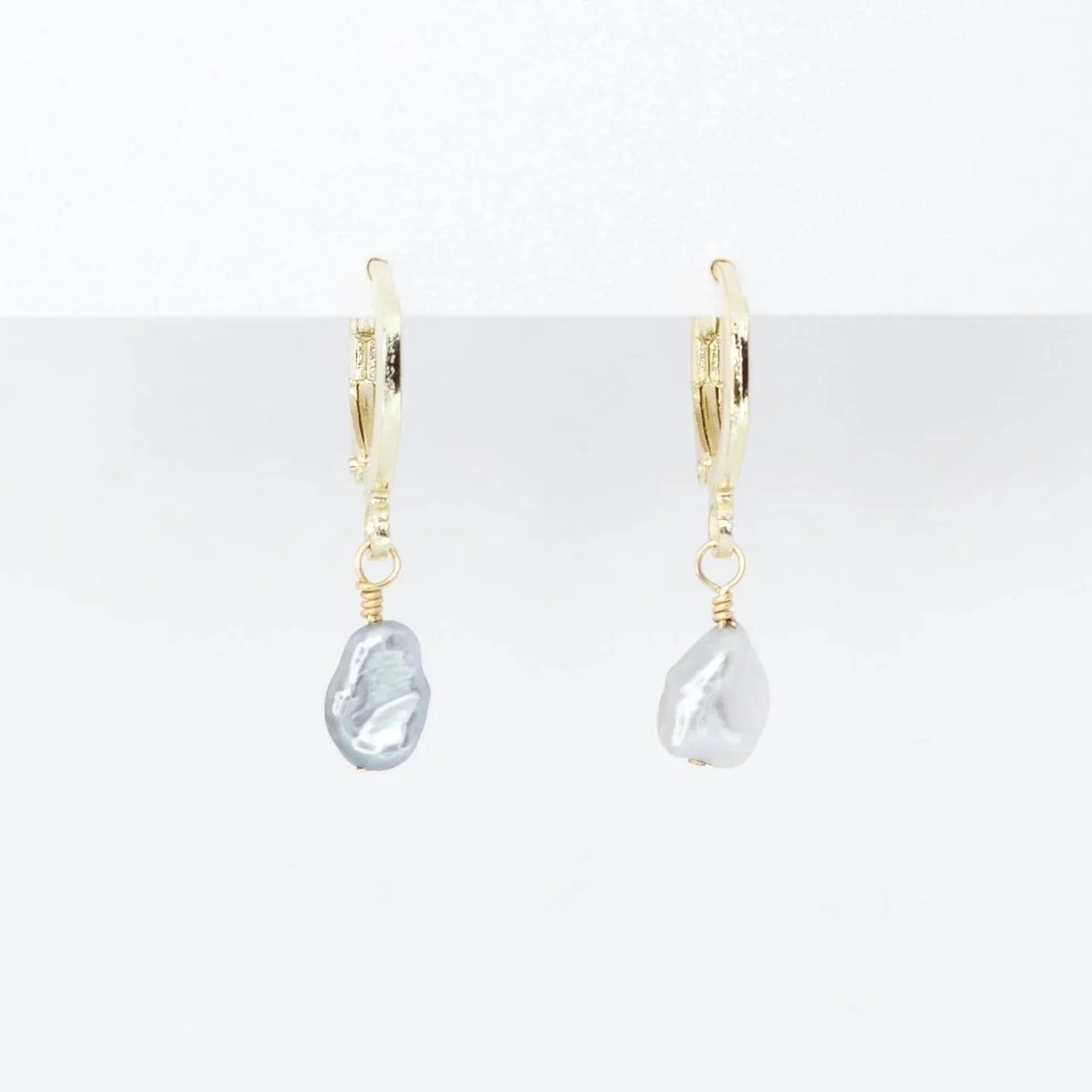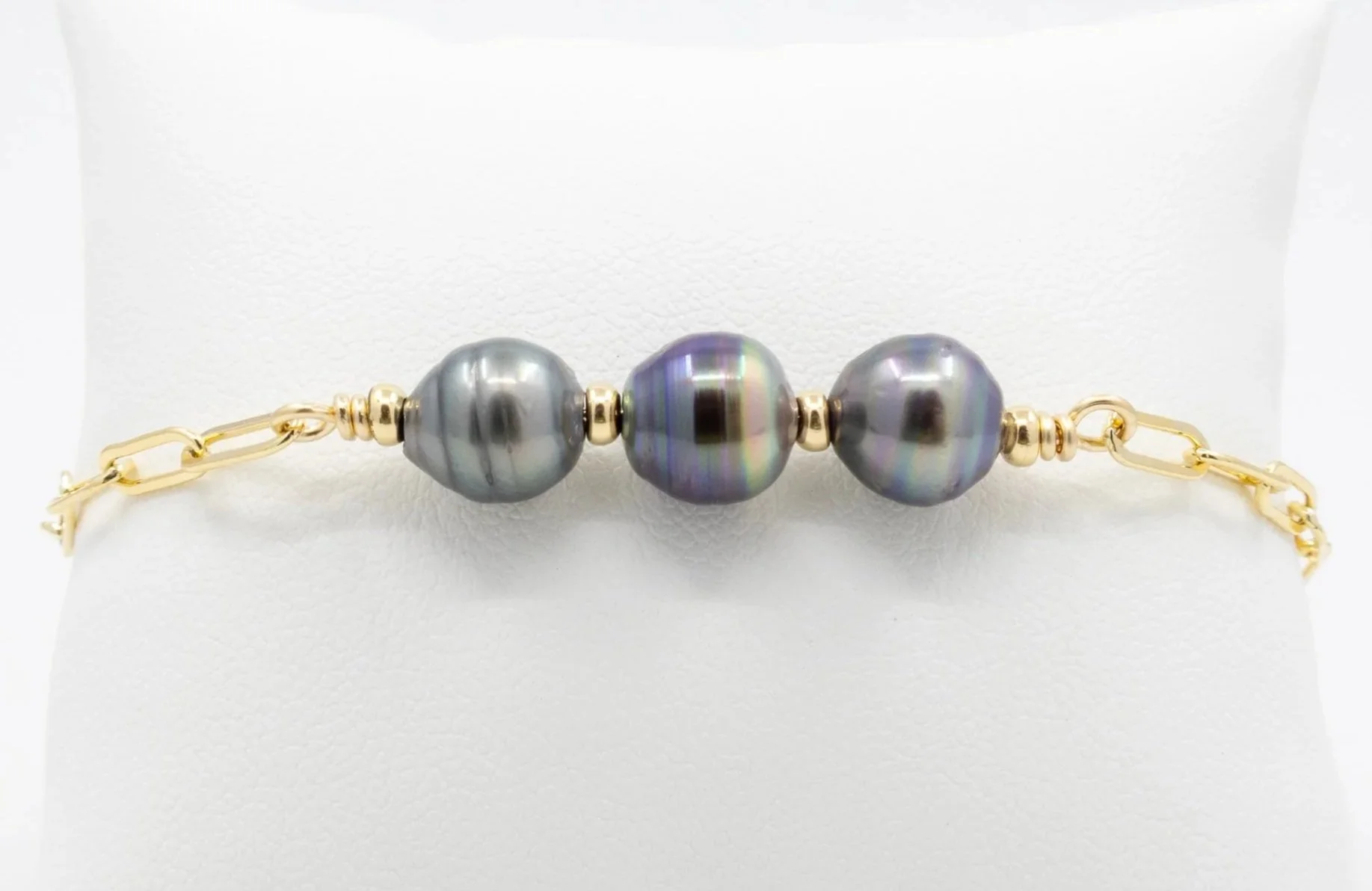
Tahitian Pearls
-
Tahitian pearls are among the largest pearls globally, measuring between about 7 mm and 18 mm in diameter.
The allure of Tahitian pearls goes beyond their size as they feature a stunning variety of iridescent colors which uniquely display a complete color spectrum. The black-lip pearl oysters produce a mantle with a rainbow-like appearance that showcases all natural hues.
Due to their bead nucleation, most Tahitian pearls tend to be round or nearly round, although they can also come in various shapes such as drops, baroques, buttons, and circled. However, unblemished, round Tahitian pearls hold the highest value.
-
Globally, Tahitian pearls were once the most sought-after and prized cultured pearls.
While they still hold greater value compared to freshwater and akoya pearls, the number of farming operations has since expanded beyond a few small atolls, increasing the yield of Tahitian pearls.
This has impacted market dynamics, making Tahitian pearls accessible to a broader audience. A few decades ago, a flawless strand of Tahitian pearls would was priced around $100,000. Nowadays, similar strands can be priced at approximately $2,000 to $4,000.
-
Despite being named after the renowned island of Tahiti, Tahitian pearls are not sourced directly from there. Instead, Tahiti serves as the primary trading hub for atolls that cultivate these pearls.
Black-lip pearls are harvested in regions including French Polynesia, the Cook Islands, the Micronesian Islands, and to a lesser extent, Japan, Thailand, and the Philippines; however, only pearls produced in French Polynesia can officially be referred to as Tahitian pearls.







